#the sayer of the law
Text

The Sayer Of The Law by Francesco Francavilla
15 notes
·
View notes
Photo

Bela Lugosi as The Sayer of The Law in Island Of Lost Souls
Watercolors on Paper, 8.5″ x 11″, 2023
By Josh Ryals
#bela lugosi#the sayer of the law#island of lost souls#the island of dr. moreau#h.g. wells#30s pre-code horror#science fiction#are we not men?#no spill blood#the house of pain#jack pierce#fan art#original art#portraits#painting#watercolors#josh ryals#joshua ryals#josh ryals art#joshua ryals art#joshryalsart
22 notes
·
View notes
Photo
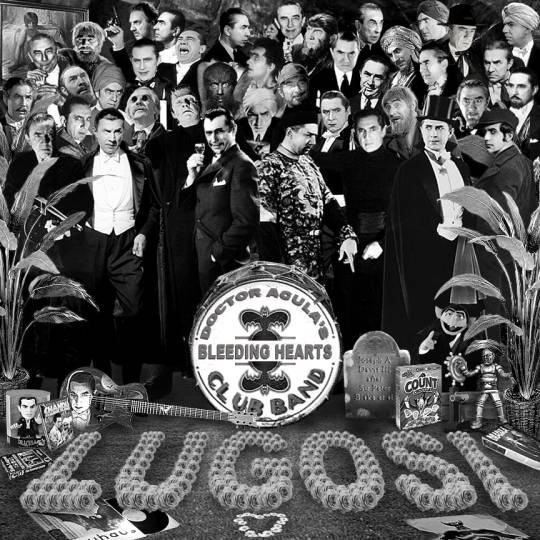
A happy commemorative birthday to Bela Blasko aka Bela Lugosi. This is a montage I made ages ago as a tribute to Mr. Lugosi and as a tribute to the artwork of Jann Haworth, and Peter Blake (et al). I did receive a nice email from Mr. Lugosi’s granddaughter and son when they were made aware of my little endeavor.
#bela lugosi#bela blasko#dracula#count dracula#count mora#ygor#the sayer of the law#island of lost souls#the black cat#the wolf man#frankenstein meets the wolf man#son of frankenstein#the ghost of frankenstein#the ape man#night of terror#mark of the vampire#the return of the vampire
22 notes
·
View notes
Photo
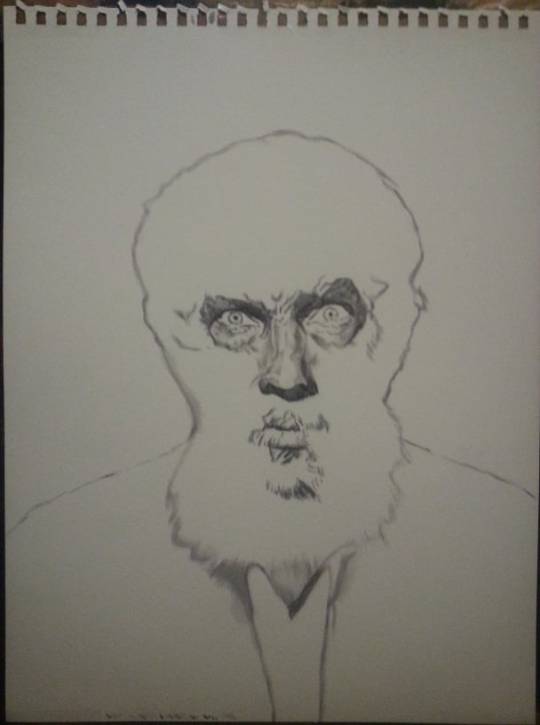



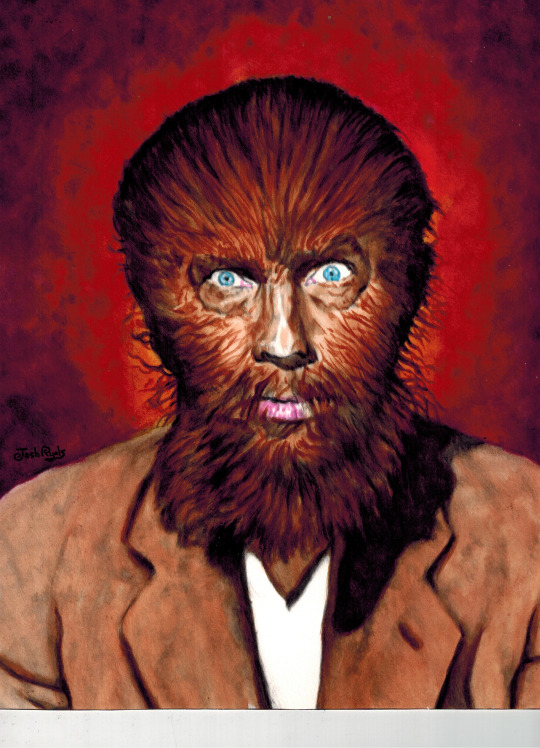
1 note
·
View note
Photo
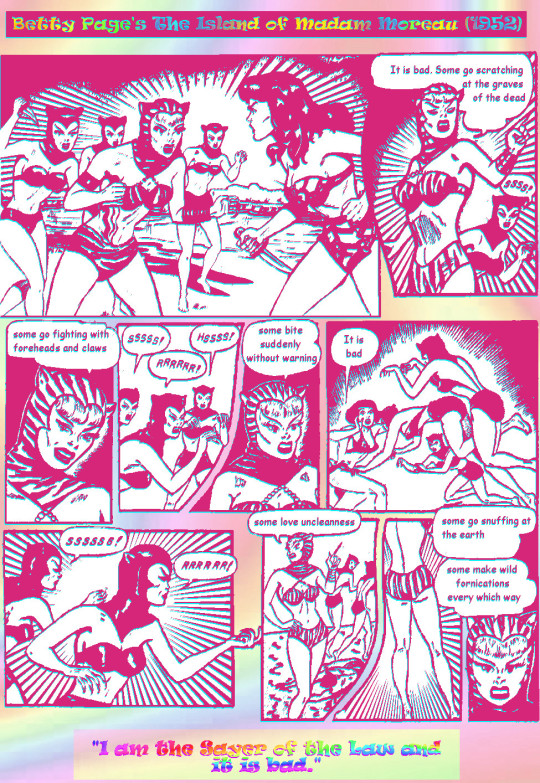
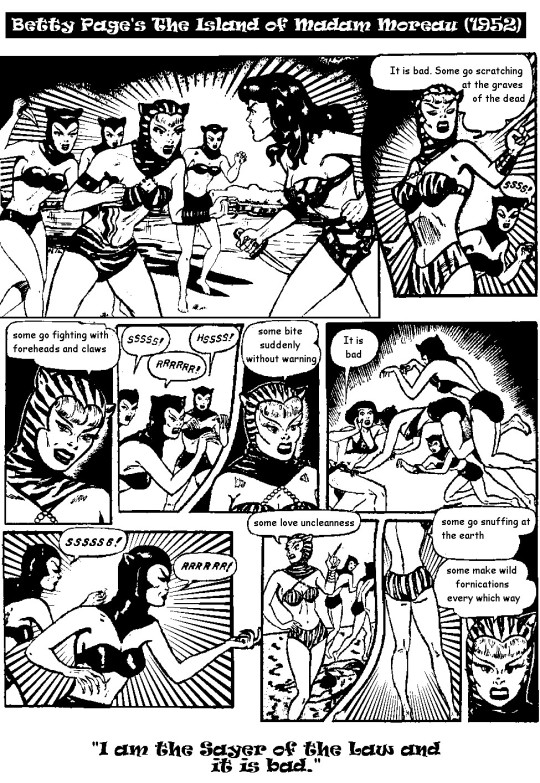
Betty Page's The Island of Madam Moreau (1952)
34 notes
·
View notes
Text
"Ethically," observed Mr Murbles, "there may be much to be said for your for your point of view. Legally, I am afraid, murder is murder, however frail the victim or convenient the result."
Dorothy L. Sayers, Unnatural Death
4 notes
·
View notes
Text
On December 18, 1933, Island of Lost Souls debuted in Turkey.

Here's some new Bela Lugosi art!
#island of lost souls#erle c. kenton#bela lugosi#sayer of the law#pre code hollywood#pre code film#pre code horror#sci fi#horror movies#science fiction#sci fi art#horror art#horror#monster movies#tcm underground#the island of dr moreau#monster art#movie art#art#drawing#movie history#pop art#modern art#pop surrealism#cult movies#portrait#cult film
2 notes
·
View notes
Text

#admiral nelson#voyage to the bottom of the sea#richard basehart#sayer of the law#the island of dr. moreau#what is the law?
1 note
·
View note
Text
The Play That Goes Wrong: The Cornley Polytechnic Drama Society prepare to stage their new production – the 1920s murder mystery 'Murder at Haversham Manor'. However the set is not yet complete and there is no time to finish it off…..the show must go on! With a murder (and a moving corpse) established from the beginning, the murder mystery gets into full flow. However, the props start to disappear, actors go missing and the set begins to collapse around, and often on, the cast. Mayhem ensues, the acting gets worse, and the set becomes increasingly dangerous, but the company struggle on regardless.
A Doll's House: Nora and Torvald Helmer have a seemingly traditional nineteenth-century marriage. Torvald adores his wife, although he belittles her comprehension of the world. However, Nora has lived with a secret for years. She forged her father’s signature in order to borrow money to take her husband to Italy for recuperation after an illness. Her husband, Torvald, is now in a senior position working at the bank and Nora has been paying off the loan in installments. Yet her secret is about to be revealed when Torvald threatens to fire Nils Krogstad, the man Nora borrowed the money from.
Propaganda under the cut!
The Play That Goes Wrong:
Goofy, silly, I love these characters your honor. A second floor of a set falls down.
Silly! Energetic! Disastrous!
It was fun and I had a good time :)
It's the most incredible straight play of modern time. It's the stereotypical murder mystery, but with Murphy's law applied to the actual production- everything that can go wrong, does. We don't simply have the characters on the stage, we also have the actors playing them, who are all so well developed with their own foibles. From "I'm Chris Bean, the Die-rector" until the set literally falls apart, it's the funniest thing in the world, and you won't stop laughing even after you've left the theatre. More than the humor, though, it makes the theatre, and all its quirks, accessible. It demonstrates how much work goes into making a show happen, both onstage and behind the scenes. That appreciation is something very rarely shown let alone celebrated- and celebrated is the right word here. For even when everything goes wrong, and everything DOES in fact go wrong, they keep going. The show must go on, and it does, and it's wonderful. Also the three guys who star in it wrote it, and they're actually the sweetest guys ever, which is a rarity in the world of the arts.
A Doll's House:
The ending really got me! I wasn't expecting it.
140 notes
·
View notes
Note
I really don't like how we're just glossing over the fact that Gwen cheated on Peter let alone MJ hiding this from him.
who's glossing? i'm writing a whole fic about it.
2. they were on a BREAK

3. you're forgetting that peter and gwen are dramatic irony the couple™ and at exactly the precise same time gwen had her tongue down mary jane's throat peter had his tongue down harry's. the exact same night.
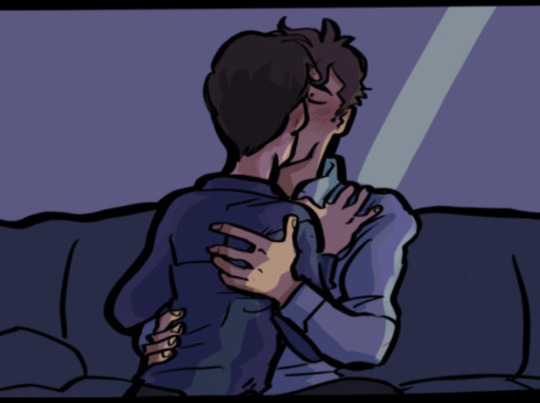
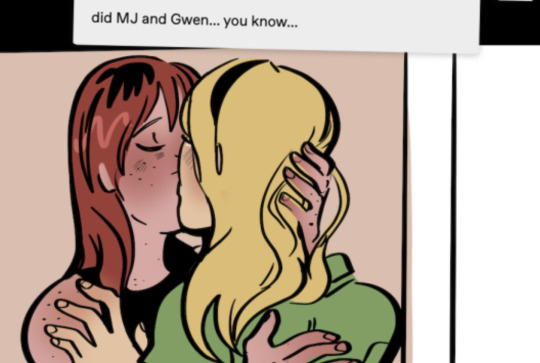
the joke is that peter has been burying all this guilt for years thinking that he'd failed gwen and was terrible and dishonest and she was an angel who was too good for him until he finds out. gwen was always just as much of a messy bitch as he was. but he was too busy spiralling in his own messes to realise that gwen was just as messy as he was.
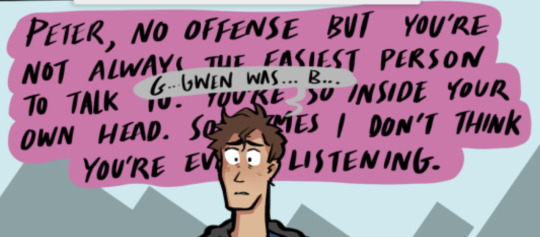
4. mj didn't tell him, sure. but that's because she assumed gwen told him. i don't think mj's the sort of girl to say "hey by the way i fucked your girlfriend shitlips" even if that would be hilarious. she didn't think it was a secret though and definitely thought gwen told peter.

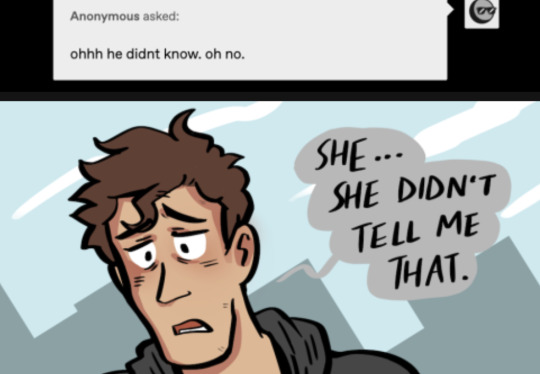
and yeah. i'd hesitate to call it cheating - they were definitely on a break. they might not have laid down a law, and definitely both feel ridiculously guilty about it, but they. were. on a break.

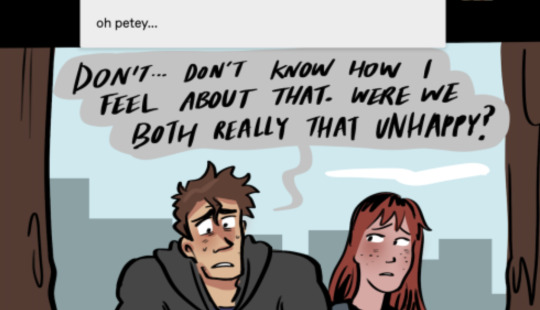
i think it was just a necessary thing, for both of them.
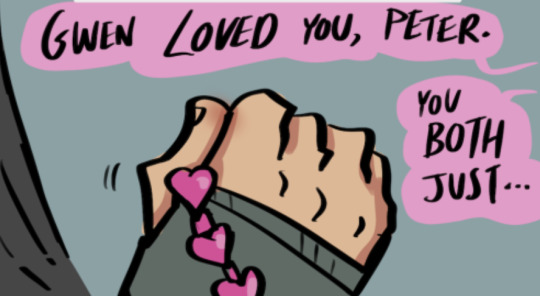
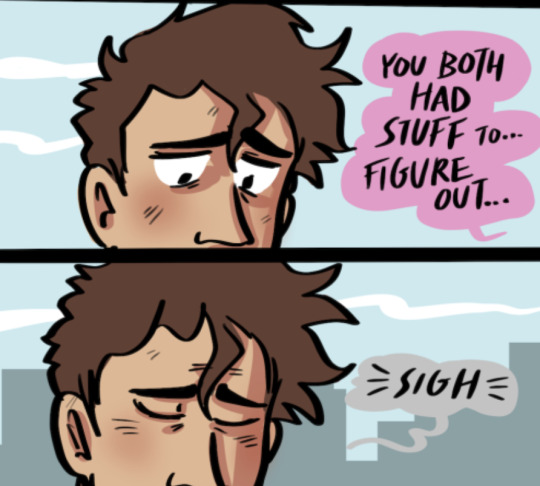
i think for me, i'm not about the moral black-and-white of relationships - it always got me down when people point at the piña colada song saying it's terrible. it's about cheating. that's objectively bad and evil so says it in the bible thou shall not commit adultery yadda yadda yadda. no, no, shut up. that's not what the song is about. the song is about rediscovering there's stuff you've overlooked about your partner. that you can think you love someone, but not actually know them. and you can learn more about them, and realise they're not what you thought, and you can fall in love with them all over again. for me, that's like, the most romantic thing ever, actually. and those who look at it through the "this song is about cheating" lens completely sleep on how genuinely, sincerely cute and romantic it is. that it's a song not about cheating, but discovering stuff you didn't know about your partner, and falling in love with them all over again. finding out that actually, you're both the kind of person who's crazy and lustful for life enough to run away with a romantic stranger on a wild escape, but you were both too afraid to admit that to each other. i love that song. it's so much more sincere and human than any stupid love song. nay sayers get away from me.
i think peter and gwen are a lot like that piña colada song. neither of them are a villain. both of them make mistakes and both of them were messy and both of them had stuff to figure out before they could make it work together.
i... sighs... i'd like people to kind of stop expecting these guys to be right all the time. they're disasters. i wouldn't be interested to write them in any other way. and i promise you wouldn't be interested to read it, either. i'm here for the messy bitches who have stuff to figure out. shout out to the messy bitches who have stuff to figure out.
#sci speaks#ask-spiderpool#the people who say the pina colada song is about cheating and that's bad are the same people who say that#beauty and the beast is about stockholm syndrome and that's bad#claiming moral superiority over a cute quirky little song and missing the point entirely.......#i should've replied to anon “oh so its okay when peter does it but when gwen does it it's WRONG... god forbid a woman do anything”
133 notes
·
View notes
Text
Cabin Pressure Advent Day 16: Paris
PAAAAAARRRRRRIIIISSSS!
There are not words for how much I love this episode, there really aren't. I actually listened to it early this morning because I was so excited, and then had to deal with a difficult personal situation and was like "oh dang I wish I hadn't listened to it yet so I could cheer up from it now!" But I had, so I listened to Hot Desk (from Double Acts) instead. Also very effective.
Anyway- I love everything about this episode, because I LOVE Golden Age mysteries! I'm not super well read on all the different authors, but I've had a lot of fun over the years reading Conan Doyle (and Poe and Wilkie Collins, if we're going that far back), Chesterton, Christie, and more recently Sayers, and even more recently have read a smattering as well of John Dickson Carr, Margery Allingham, Anthony Berkeley, and a bunch of others. To digress a little, I highly highly recommend Martin Edwards's excellent book The Golden Age of Murder and his wonderful short-story anthology compilations and reprints- it really got me on a kick of trying to read a bit more broadly in the genre after discovering how much I loved reading a few specific authors growing up. It's been really rewarding and I highly recommend it!
Now, the thing with Paris is that the popular backstory is "John Finnemore had Benedict Cumberbatch on the show, he became famous as Sherlock on Sherlock, Finnemore thought it would be funny to do a mystery themed one as a result, and so we have Marin Crieff as "Miss Marple." Which is apparently not UNtrue per se, but JF himself has said that he always planned to do a mystery episode. Which makes sense, as in the first link just now JF makes clear that Golden Age mysteries are his "trashy fiction of choice," about which I can only say amen!
Which is what makes the episode so great- because it's super clear what kind of love for the genre he put into the episode as a result. There's the Christie- obviously the Miss Marple references but also the "gathering everyone together in the parlor" thing (which she doesn't do ALL the time... but she does PRETTY often lol). There's obviously the Conan Doyle reference, which is "snappily put," as Douglas says. There's a fun reference to Raffles- who may not be a detective himself but is definitely a cousin to the whodunnit genre (or shall we say brother-in-law, as he was Conan Doyle's...), and there's "Crieff of the Yard," which is a phrase that I'm confident has a basis in detective writing but that I'm not able to pinpoint, which is annoying. Arthur's example of the monkey at the circus also evokes a few stories of MASSIVELY varying quality involving unlikely murderous animals, which is always fun. (And parenthetically, while there are no Sayers references that I can find, I will say that I continue to be confident that the dog-collar plotline in Here's What We Do from Double Acts is a reference to the dog-collar plotline in Gaudy Night. He has never confirmed it but like, how could it not be? Or at least so I tell myself.)
But all of that is window dressing- the episode itself is a beautifully written impossible crime mystery, and I love that about it. JF has mentioned that he likes John Dickson Carr, who was big for locked room mysteries/impossible crimes- though loads of writers wrote them (including, incidentally, AA Milne, who you likely know better from Winnie the Pooh, who wrote a fun early example of the genre that you can read here for free because of that magical phenomenon, copyright expiration). And this episode is just such a good example of one that it makes me wish that JF would get into the whodunnit-writing game more broadly (beyond his Cain's Jawbone sequel). If Richard Osman can do it...!
In one of the above-linked blogposts, JF mentions that it's "pleasing how naturally my main cast fitted into familiar roles from the detective fiction genre - the meticulous detective, his devoted assistant, his no nonsense boss… and his nemesis, the Napoleon of crime." Which is awesome, but I think there's even more there. I particularly love that it's an impossible crime mystery in a closed circle. While there's a genre of whodunnit where you have the corpse or whatever and have to cast a wide net to find witnesses and clues, writers there often either have to make the potential dead ends in the detective work REALLY interesting or rely a lot on coincidence. Closed circle crimes (like ones at a country house or within a workplace or somewhere with guards at all the doors or something like that) can help mystery writers focus in on the story without having to worry too much about the logistics of "why these people?" and it's why you get so many mysteries set on trains or ships or islands or whatever. And an airplane is one of the best closed circles there is, because unless you're DB Cooper you're not getting out. Agatha Christie did an early one in Death in the Clouds which is a lot of fun, and this episode is a great example.
The fun thing about closed circle whodunnits and impossible crime mysteries is that the whole point of them is that usually, the author is just straight up lying to you. There's a vent for a snake to go through, or a secret doorway to the outside, or the time when the door was locked or the circle was closed isn't actually when the crime took place, but a fake gunshot makes you think it was. And that's why I love this so much- because the author/liar of the mystery is Douglas. He's the genre savvy one. He's the one who's lying, he's the one who's turning it all into a whodunnit, and he's waiting to see if he can get away with it. He's the Napoleon of Crime- and a Columbo villain setting up the false trail that he hopes Columbo will fall for.
Because... and JF notes this in both blog posts... there's no mystery here! Obviously Douglas did it. The point here is that this episode is like if Columbo was as dumb as he seemed and the criminal managed to lead him down the garden path and got away with it. It's "what if Poirot were a moron but still had to solve the murder of Roger Ackroyd." Douglas is the one who creates an impossible crime scheme, anticipates that he'll still be suspected because, well, he's him, and manages to come up with alternative scenarios- including ones that open the seemingly closed circle of the crime- that are convincing enough to throw Martin off the scent. Without him, it would just be "so how did Douglas do it this time?"
Now, the impossible crime is still important, because while we all kind of know that Douglas did it, we still don't know how he did it. And from that perspective alone, JF's impossible crime puzzle is genius. The clues that he drops are really interesting (I'm not 100% sure I see the nail polish bottle as being fair play, but plenty of whodunnits aren't so I don't really care) and it's something that, even as we see Douglas writing a whole separate decoy mystery (reminiscent of his decoy apple juice?) on top of his own scheme, keeps us intrigued throughout even once it becomes pretty clear that Douglas has been snowing all of them. So all of that is fun- but it's far more fun with all the other tropes and schemes and false trails laid on top of it, giving it so many more dimensions.
And then, at the end, nobody solves it- the detective's reveal, after all the carefully left false trails, comes from the thief himself.
It's just... so beautiful. Ahhhh.
I feel like (and one of the blog posts mentions this) that there's a question of whether Douglas actually pulled it off, particularly in the context of whether Martin would really need to pay Carolyn at the end. My opinion is: practically, yes, Douglas stole the whiskey. If Birling hadn't offered them the cufflinks, he'd never have revealed his trick and he'd have had ample opportunity the rest of the trip to empty his decoy apple juice in the sink, replace it with whiskey, and fill up the bottle with cheap whiskey from the plane's bar or the Paris airport duty free. (Or whatever his plan was- but that seems plausible.) Carolyn would have never known once they returned. And the episode leaves open whether practically speaking Martin actually does have to pay Carolyn, but thematically... yes, of course he does, the whole question here is "is Douglas the organ grinder" and the answer is that he obviously is. The monkey's gotta pay up!
I love, incidentally, so many more things about this episode- the humor, Mr Birling, the ways in which everything is so true to character, basically everything about Arthur... but I've already gone on long enough.
22 notes
·
View notes
Text
Critical Theory Recommended Reading List:
Principles of Communism (Friedrich Engels)
Wage-Labour and Capital Value, Price and Profit (Karl Marx)
Das Kapital (Karl Marx)
The Communist Manifesto (Karl Marx)
On Practice & On Contradiction (Mao Zedong)
The Motorcycle Diaries (Che Guevara)
Latin America Diaries (Che Guevara)
Reminiscences of the Cuban Revolutionary War (Che Guevara)
Guerilla Warfare (Che Guevara)
Che (Jon Lee Anderson)
Socialism: Utopian and Scientific (Friedrich Engels)
The Origin of the Family, Private Property and the State (Friedrich Engels)
Orientalism (Edward W. Said)
The Unwomanly Face of War (Svetlana Alexievich)
The Wretched of The Earth (Frantz Fanon)
A Dying Colonialism (Frantz Fanon)
Black Skin White Masks (Frantz Fanon)
Inglorious Empire (Shashi Tharoor)
Remembering Che (Aleida March)
Against Empire (Michael Parenti)
Blackshirts & Reds (Michael Parenti)
Revolutionary Suicide (Huey P. Newton)
Confessions of an Economic Hitman (John Perkins)
The Mismeasure of Man (Stephen Jay Gould)
The State and the Revolution (V.I. Lenin)
Imperialism: The Highest Stage of Capitalism (V.I. Lenin)
Imperialism in The 21st Century (V.I. Lenin)
Liberalism A Counter History (Domenico Losurdo)
23 Things They Don't Tell You About Capitalism (Ha-Joon Chang)
October (China Miéville)
Kill Anything That Moves (Nick Turse)
Blitzed: Drugs in Nazi Germany (Norman Ohler)
Late Victorian Holocausts (Mike Davis)
Ten Myths About Israel (Ilan Pappe)
How Europe Underdeveloped Africa (Walter Rooney)
Reform or Revolution (Rosa Luxemburg)
Settlers: The Mythology of the White Proletariat (J. Sakai)
Killing Hope (William Blum)
Unequal Exchange and the Prospects of Socialism (Arghiri Emmanuel)
Unequal Exchange: A Study of Imperialism and Trade (Arghiri Emmanuel)
The Wealth of Some Nations (Zak Cope)
Divided World Divided Class (Zak Cope)
The Law of Worldwide Value (Samir Amin)
Unequal Development (Samir Amin)
An Economic History of the U.S.S.R (Alec Nove)
Human Rights in the Soviet Union (Albert Szymanski)
Is the Red Flag Flying? (Albert Szymanski)
Soviet Democracy (Pat Sloan)
The Industrialisation of Soviet Russia: The Socialist Offensive (R.W. Davies)
Soviet Communism: A New Civilisation (Sidney and Beatrice Webb)
Socialism in the Soviet Union (Jonathan Aurthur)
The Soviet Form of Popular Government (The U.S.S.R Academy of Sciences)
Workers Participation in the Soviet Union (Mick Costello)
The Great Conspiracy (Michael Sayers and Albert E. Kahn)
The Soviets and Ourselves: Two Commonwealths (K.E. Holme)
The Old Social Classes and the Revolutionary Movements of Iraq (Hanna Baratu)
South Yemen A Marxist Republic in Arabia (Robert W. Stookey)
The Arab Left (Tareq Y. Ismael)
Post-Marxism and The Middle East (Feleh A. Jabar)
The Unmaking of Arab Socialism (Ali Kodri)
The Hundred Years' War on Palestine (Rashid Khalidi)
The Ethnic Cleansing of Palestine (Ilan Pape)
A Strategy for the Liberation of Palestine (The Popular Front for the Liberation of Palestine)
Roadside Picnic (Arkady and Boris Strugatsky)
Blood in My Eye (George Jackson)
Why You Should Be a Trade Unionist (Len McCluskey)
The Pitfalls of Liberalism (Kwame Ture)
9 notes
·
View notes
Photo
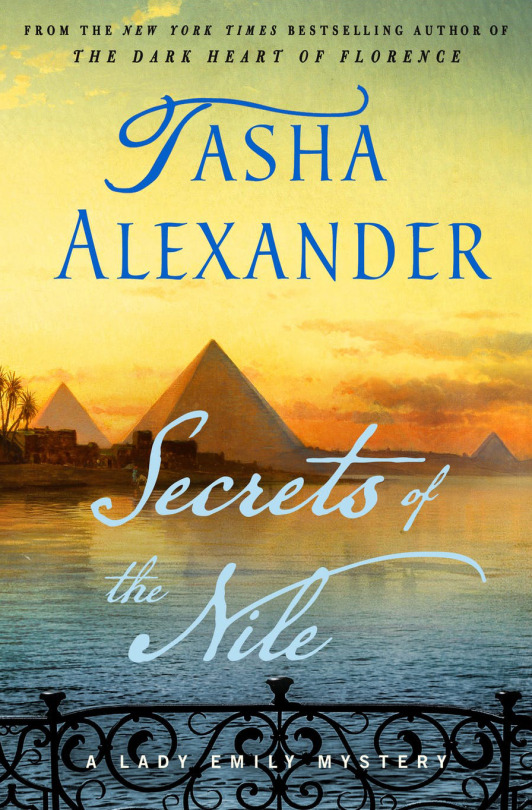
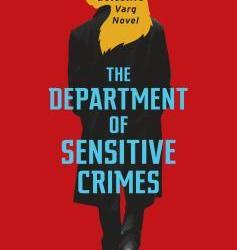
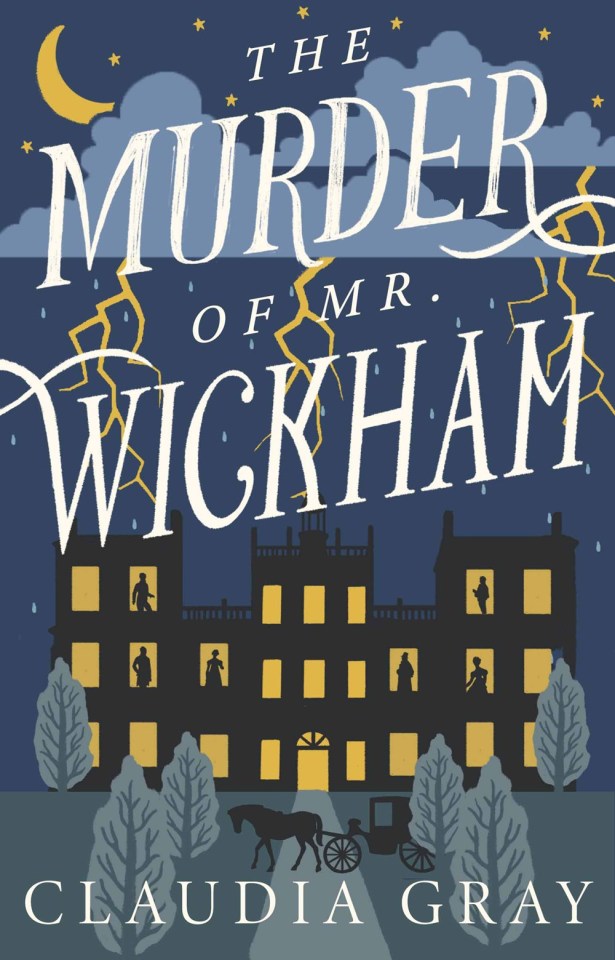
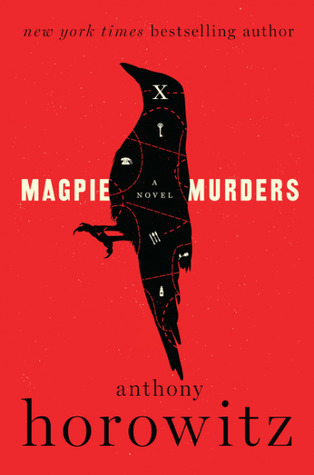

Book Recommendations: For Fans of��� Knives Out
Did you enjoy the newest Knives Out mystery, Glass Onion? Here are some read-alikes you may enjoy!
Secrets of the Nile by Tasha Alexander
Lord Bertram Deeley, a renowned amateur British collector of antiquities is entertaining his closest friends at a lavish cruise up the Nile to his home at Luxor when he suddenly collapses after offering a welcome toast, a victim of the lethal poison cyanide. Who amongst this group of his nearest and dearest would want to kill their generous host: an archeologist whose dig Deeley was funding until he suddenly withdrew support? A powerful politician whose career Deeley had secretly destroyed? A dyspeptic aristocratic English spinster whose hired travelling companion seems determined to protect her employer? Or even the formidable Mrs. Hargreaves, Lady Emily’s mother-in-law, who may have spurned the advances of Lord Deeley when they were both younger? A key clue may lie with several ancient ushabtis, exquisite three-thousand-year-old sculptures that played a role in yet another murder in Ancient Egypt, a crime with a very real link to Lord Deeley’s death. Lady Emily and Colin gather their suspects together to reveal the identity of a killer whose motive is as shocking as it is brilliant.
This is the 16th volume in the “Lady Emily Ashton Mysteries” series.
The Department of Sensitive Crimes by Alexander McCall Smith
In the Swedish criminal justice system, certain cases are considered especially strange and difficult - the dedicated detectives who investigate these crimes are members of an elite squad known as the Sensitive Crimes Division. These are their stories.
The first case: the small matter of a man stabbed in the back of the knee. Who would perpetrate such a crime and why? Next: a young woman's imaginary boyfriend goes missing. But how on earth do you search for someone who doesn't exist? And in the final investigation: eerie secrets that are revealed under a full moon may not seem so supernatural in the light of day. No case is too unusual, too complicated, or too, well insignificant for this squad to solve.
The team: Ulf “the Wolf” Varg, the top dog, thoughtful and diligent; Anna Bengsdotter, who's in love with Varg's car (and possibly Varg too); Carl Holgersson, who likes nothing more than filling out paperwork; and Erik Nykvist, who is deeply committed to fly fishing.
This is the first volume in the “Detective Varg” series.
The Murder of Mr. Wickham by Claudia Gray
The happily married Mr. Knightley and Emma are throwing a house party, bringing together distant relatives and new acquaintances - characters beloved by Jane Austen fans. Definitely not invited is Mr. Wickham, whose latest financial scheme has netted him an even broader array of enemies. As tempers flare and secrets are revealed, it’s clear that everyone would be happier if Mr. Wickham got his comeuppance. Yet they’re all shocked when Wickham turns up murdered - except, of course, for the killer hidden in their midst.
Nearly everyone at the house party is a suspect, so it falls to the party’s two youngest guests to solve the mystery: Juliet Tilney, the smart and resourceful daughter of Catherine and Henry, eager for adventure beyond Northanger Abbey; and Jonathan Darcy, the Darcys’ eldest son, whose adherence to propriety makes his father seem almost relaxed. The unlikely pair must put aside their own poor first impressions and uncover the guilty party - before an innocent person is sentenced to hang.
Magpie Murders by Anthony Horowitz
Alan Conway is a bestselling crime writer. His editor, Susan Ryeland, has worked with him for years, and she's intimately familiar with his detective, Atticus Pünd, who solves mysteries disturbing sleepy English villages. Alan's traditional formula pays homage to queens of classic British crime such as Agatha Christie and Dorothy Sayers. It's proved hugely successful. So successful that Susan must continue to put up with his troubling behavior if she wants to keep her job.
When Susan receives Alan's latest manuscript, in which Atticus Pünd investigates a murder at Pye Hall, an English manor house, she has no reason to think it will be any different from the others. There will be dead bodies, a cast of intriguing suspects, and plenty of red herrings and clues. But the more Susan reads, the more she’s realizes that there's another story hidden in the pages of the manuscript - one of ambition, jealousy, and greed - and that soon it will lead to murder.
This is the first volume in the “Susan Ryeland” series.
The Hunting Party by Lucy Foley
During the languid days of the Christmas break, a group of thirtysomething friends from Oxford meet to welcome in the New Year together, a tradition they began as students ten years ago. For this vacation, they’ve chosen an idyllic and isolated estate in the Scottish Highlands - the perfect place to get away and unwind by themselves. They arrive on December 30th, just before a historic blizzard seals the lodge off from the outside world.
Two days later, on New Year’s Day, one of them is dead.
The trip began innocently enough: admiring the stunning if foreboding scenery, champagne in front of a crackling fire, and reminiscences about the past. But after a decade, the weight of secret resentments has grown too heavy for the group’s tenuous nostalgia to bear. Amid the boisterous revelry of New Year’s Eve, the cord holding them together snaps. Now one of them is dead... and another of them did it. Keep your friends close, the old adage goes. But just how close is too close?
#mysteries#murder mystery#fiction#knives out#readalikes#book recommendations#book recs#reading recommendations#reading recs#library books#to read#TBR pile#tbr#booklr#book tumblr#book blog
75 notes
·
View notes
Text
Going from Sayer, where the AI is a lawful evil lowkey-omniscient force of brutality, to Mistholme Museum, where the AI is literally just a little guy trying to do its best and going out of its way to help people, is quite the tone shift.
#you should listen to them both though theyre both so good#sayer#sayer podcast#the mistholme museum of mystery morbidity and mortality#mistholme museum
27 notes
·
View notes
Text
Halloweenathon:Island of Lost Souls
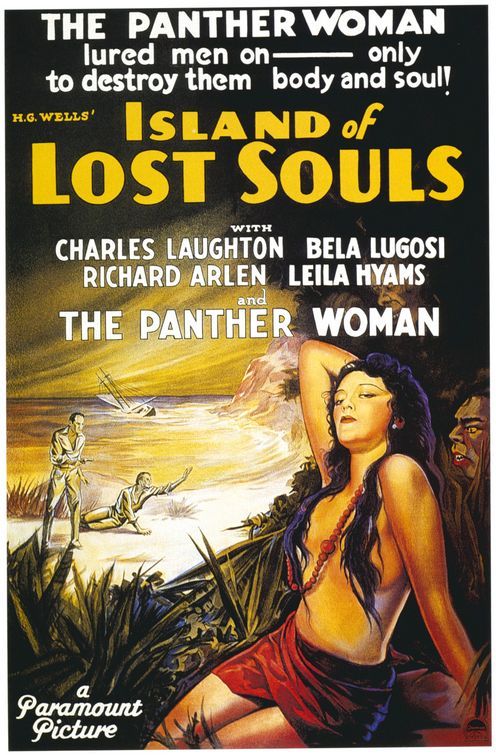
So today we are looking at a movie that I had I had watched....Cept it turns out I never saw the ending before
In this 1932 film Edward Parker (Richard Arlen ) finds himself on the island of Dr Moreau (Charles Laughton ) who has been turning animals into people through surgery and is keeping Parker to mate him with a Panther woman ,Lota (Kathleen Burke )
OK first ,I just wanna say this poster is a LIE ,as it makes the movie seem like it is aboust the Panther Woman seducing and killing people ,when in accuality,Lota is a sympathetic character and the villain is Dr Moreau
So this is a pre code classic and I say a true horror film.The Beast men are scary (Peops to makeup man Wally Westmore ) ,dealing with vivisections ,and Charles Laughton is an effective villain,a calm yet morally bankrupt mad scientist with a god complex and a whip Besides LAughton you also get some great performances by Kathleen Burke as Lota the PAnther woman and Bela Lugosi in a small but memorable role as The Sayer of The Law,the leader of the Beast Men (He is also the most qoutable character"ARE WE NOT MEN!").ALso love the climax that is awesome
Like many a horror film though the weak aspect is the main leads,who are fine but just not interesting and the ending is kind of unintentionally funny
Overall its a good flick do reccomend
@ariel-seagull-wings @amalthea9 @angelixgutz @princesssarisa @filmcityworld1 @the-blue-fairie @theancientvaleofsoulmaking @makingboneboy @themousefromfantasyland
10 notes
·
View notes
Text
"I know what an Act to make things simpler means. It means that the people who drew it up don't understand it themselves and that every one of its clauses needs a law-suit to disentangle it."
Dorothy L. Sayers, Unnatural Death
4 notes
·
View notes